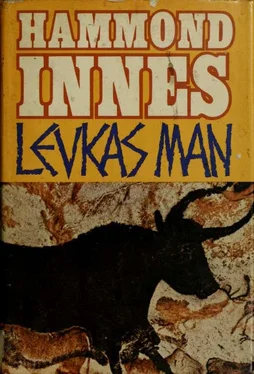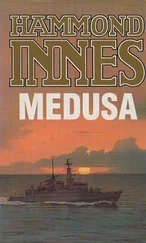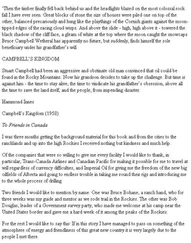Hammond Innes - Levkas man
Здесь есть возможность читать онлайн «Hammond Innes - Levkas man» весь текст электронной книги совершенно бесплатно (целиком полную версию без сокращений). В некоторых случаях можно слушать аудио, скачать через торрент в формате fb2 и присутствует краткое содержание. Жанр: Прочие приключения, на английском языке. Описание произведения, (предисловие) а так же отзывы посетителей доступны на портале библиотеки ЛибКат.
- Название:Levkas man
- Автор:
- Жанр:
- Год:неизвестен
- ISBN:нет данных
- Рейтинг книги:3 / 5. Голосов: 1
-
Избранное:Добавить в избранное
- Отзывы:
-
Ваша оценка:
- 60
- 1
- 2
- 3
- 4
- 5
Levkas man: краткое содержание, описание и аннотация
Предлагаем к чтению аннотацию, описание, краткое содержание или предисловие (зависит от того, что написал сам автор книги «Levkas man»). Если вы не нашли необходимую информацию о книге — напишите в комментариях, мы постараемся отыскать её.
Levkas man — читать онлайн бесплатно полную книгу (весь текст) целиком
Ниже представлен текст книги, разбитый по страницам. Система сохранения места последней прочитанной страницы, позволяет с удобством читать онлайн бесплатно книгу «Levkas man», без необходимости каждый раз заново искать на чём Вы остановились. Поставьте закладку, и сможете в любой момент перейти на страницу, на которой закончили чтение.
Интервал:
Закладка:
Hammond Innes
Levkas man
PART ONE
It was Sunday, the street empty, the canal black under a louring sky. My footsteps sounded solitary on the cobbles and the years rolled back to childhood, every detail clear-etched on the retina of memory-the house barges moored by the bridge, the flowers set out in pots on the pavement, the newsvendor on the corner. And then the house itself, shabbier than when I had seen it last. That had been two years ago when my ship had put into Rotterdam and some strange urge-a desire for reconciliation-had brought me here. The front door and all the windows had been freshly painted then, green like the linden trees. It had been summer; now it was March and the trees were bare.
My footsteps slowed as I neared the door, a reluctance, a sense of dread almost. Last time I had had a shipboard world behind me, a job and the companionship of men I knew. Now it was different. I could feel myself beginning to tremble as I felt once again the pull of the old man's personality. There
had been no reconciliation, no renewal of our strange relationship. He had been away on one of his periodic bouts of travelling, rootling for old bones. And now, when I came seeking a temporary refuge … a fit of trembling reached down the muscles of my arm and into my hands. I paused, hesitating, summoning up the courage to face him again.
A small wind from the north blew cold down the gut of the canal between the old houses. The narrow gable, four storeys above me, had the date on it-1694-just below the jutting beam hooked for a pulley to hoist furniture in at the windows. I shivered, wondering why the hell I had come. The trembling reached into the pit of my stomach. It was nerves and quite uncontrollable. It had been like that in moments of stress since I was ten. I knew it would pass. It always did. But still I hesitated, unwilling to commit myself and step again into that lonely, embittered world from which I had escaped eight years ago.
A car drove past me, its tyres drumming on the cobbles. A girl was driving it and the quick glance of her eyes broke the spell. I went up to the door and rang the bell, remembered that it had never worked and slammed the knocker twice. The sound of it was loud enough to wake the street, but nothing stirred within the house. I stood back then, looking up at the facade; the windows were all shut, and as I tried the knocker once again, a sense almost of relief flooded through me at the thought that he might be away and I would have the place to myself.
A gust of wind blew down the canal and a branch swayed above my head to the dry rattle of twigs. A leaf left over from the autumn fell at my feet, withered and browned by frost. I thought of all the times I had walked the streets with him. He had suffered from insomnia and sometimes he had woken me in the middle of the night to go out with him into the sleeping city; walking the streets and the banks of the canals had been a sort of sedative, a means of dulling the restless energy that drove his mind. In summer he had always worn sandals and an open-necked shirt. In winter his wiry body had been bulked
out by an old goat-skin jacket, and always he had gone bareheaded, the stooped, white-maned figure with its shambling walk a familiar sight in Amsterdam. But as I had grown older he had been away more often.
The ring of keys was in my hand, still burnished bright from the years it had jostled in my pocket. Had he missed them, I wondered, remembering the loneliness, my sudden decision to go. The sun glimmered momentarily, the clouds black as ink. It looked like rain and the house stood silent, waiting. I pulled myself together then, found the key I wanted and inserted it into the Yale-type lock. The door slid open and I hesitated, the stillness of the house yawning before me. Then I picked up the suitcase I had bought the night I had abandoned the car in London and went into the house.
He was away. I could sense it the moment the door clicked shut behind me, the silence of the old house closing in. I thought of all the times I had been frightened here, frightened by his extraordinary magnetism, his unpredictable nature.
I hesitated, listening to the stillness that had closed about me. The wind sighed in the eaves and a board moved. As in all these old Amsterdam houses, the stairs were narrow and almost vertical, like a ladder leading to a loft, and the stair carpet showed thin and worn in the pale glimmer from the fanlight.
I forced myself to think why I was here, and gradually the trembling ceased, and my throat relaxed. I wasn't a child any longer and the house was empty, the old man no more than a ghostly presence. I had what I wanted-a refuge in which to lie low and time to sort myself out. That was all that mattered. I humped my suitcase up the stairs and went into the study on the first floor.
It was just as I remembered it, nothing changed; the big desk with the Anglepoise lamp, the heavy swivel chair padded in black leather, the bookshelves ranged along the wall opposite the windows, even the sombre velvet curtains and the marble clock on the mantelpiece. Though it was almost mid-
day-a quarter to twelve, in fact-the room was shadowed and dark. The sun had gone, rain gusted against the windows. I switched the light on, put my suitcase down, and took off my raincoat. What I needed was money, Dutch money. And then a round of the dockside taverns to see what I could pick up.
I went over to the desk, where a pile of letters and journals lay as though awaiting his return. I tried the drawers, but with no success. They were crammed with old bills, bank statements, cheque stubs, correspondence dating back for years; in one I found my old school reports under a litter of broken pipes, birds' feathers and old tobacco tins. And in the bottom right-hand drawer, in an old cigar box full of letters I had written him from school, I came across a short note from my mother, written from Kenya, announcing my birth and asking him to be my godfather. Pinned to it was my birth certificate and the adoption papers that changed my name from Scott to Van der Voort. In another drawer was some correspondence about a mortgage, with the deed attached, and a bundle of letters relating to his mother's estate in South Africa, faded now and held together by a thick rubber band. And below these were the details of the sale of the boat. He had only had it just over a year and the sale had been within a few months of my leaving him.
As I straightened up, the clock on the mantelpiece struck twelve. Its beautiful, clear tinkling chime was so much a part of my memory of the room that I took it for granted. My eye was caught by the top letter on the pile of correspondence. It was from a Dr. Gilmore in Cambridge, something about carbon-14 and a dating of 35–30,0006.?. Bones, of course, and the journals were all scientific. There were unpaid bills, too, and right at the bottom a note from somebody, who signed himself Alec Cartwright, confirming that he would be arriving in Belgrade with the Land-Rover on February 26.
So the old man had been gone at least three weeks.
I turned to the bureau then. That was where I'd found the cash I had needed as a kid. It stood in the corner opposite the door, a tall piece with glass-fronted shelves for books and a curved let-down flap, the walnut surface of it gleaming with the rich patina of the years. The glass case held the same collection of antique-bound books on the top shelf, the rest of it full of old bones and bits of worked flint-artefacts, he had called them. The word Mousterian came back to me, for the bones and the primitive flint axe-heads had had a certain fascination for me when I was about twelve years old. The picture my young mind had conjured up was of wild, hairy men emerging from caves to attack each other with blunt-bladed axes. I had even produced axes of my own, made with flint found at the bottom of a derelict barge, and he had shown me how to work them and how to bind the "blade" to the wooden haft with leather thongs. But it was only a passing phase and I had lost interest after he had given me a hiding for gashing another boy's head open.
Читать дальшеИнтервал:
Закладка:
Похожие книги на «Levkas man»
Представляем Вашему вниманию похожие книги на «Levkas man» списком для выбора. Мы отобрали схожую по названию и смыслу литературу в надежде предоставить читателям больше вариантов отыскать новые, интересные, ещё непрочитанные произведения.
Обсуждение, отзывы о книге «Levkas man» и просто собственные мнения читателей. Оставьте ваши комментарии, напишите, что Вы думаете о произведении, его смысле или главных героях. Укажите что конкретно понравилось, а что нет, и почему Вы так считаете.












